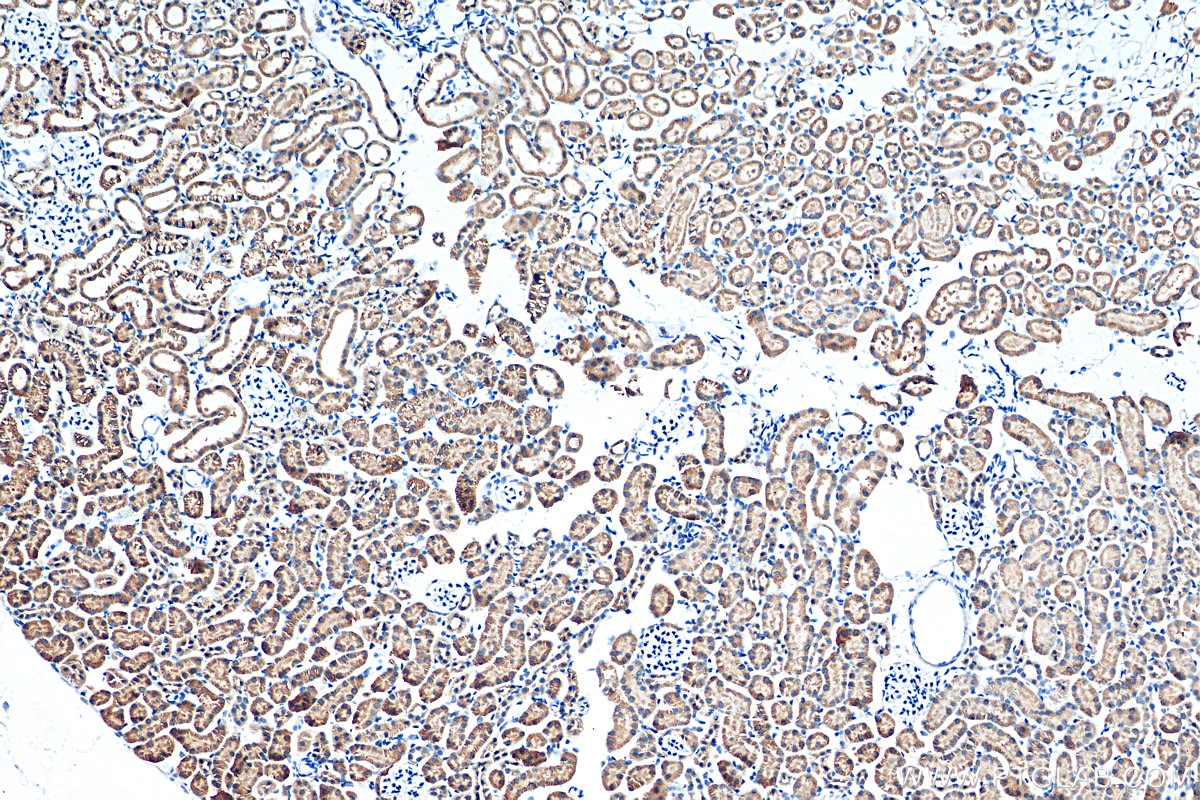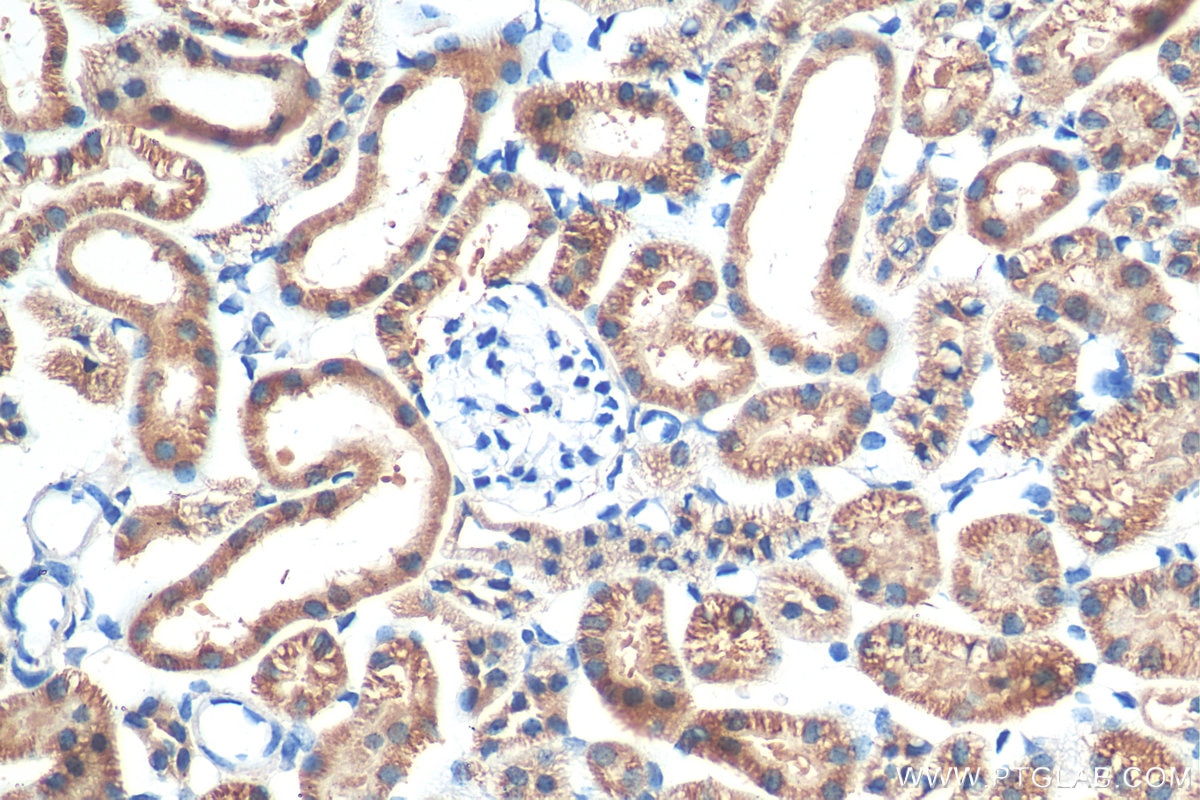Tested Applications
| Positive IHC detected in | mouse kidney tissue Note: suggested antigen retrieval with TE buffer pH 9.0; (*) Alternatively, antigen retrieval may be performed with citrate buffer pH 6.0 |
Recommended dilution
| Application | Dilution |
|---|---|
| Immunohistochemistry (IHC) | IHC : 1:400-1:1600 |
| It is recommended that this reagent should be titrated in each testing system to obtain optimal results. | |
| Sample-dependent, Check data in validation data gallery. | |
Product Information
Biotin-11681 targets PARK7/DJ-1 in IHC applications and shows reactivity with human, mouse, rat samples.
| Tested Reactivity | human, mouse, rat |
| Host / Isotype | Rabbit / IgG |
| Class | Polyclonal |
| Type | Antibody |
| Immunogen |
CatNo: Ag2287 Product name: Recombinant human PARK7,DJ-1 protein Source: e coli.-derived, PGEX-4T Tag: GST Domain: 1-189 aa of BC008188 Sequence: MASKRALVILAKGAEEMETVIPVDVMRRAGIKVTVAGLAGKDPVQCSRDVVICPDASLEDAKKEGPYDVVVLPGGNLGAQNLSESAAVKEILKEQENRKGLIAAICAGPTALLAHEIGFGSKVTTHPLAKDKMMNGGHYTYSENRVEKDGLILTSRGPGTSFEFALAIVEALNGKEVAAQVKAPLVLKD Predict reactive species |
| Full Name | Parkinson disease (autosomal recessive, early onset) 7 |
| Calculated Molecular Weight | 189 aa, 20 kDa |
| Observed Molecular Weight | 20 kDa, 25 kDa |
| GenBank Accession Number | BC008188 |
| Gene Symbol | PARK7 |
| Gene ID (NCBI) | 11315 |
| RRID | AB_3083809 |
| Conjugate | Biotin |
| Form | Liquid |
| Purification Method | Antigen affinity purification |
| UNIPROT ID | Q99497 |
| Storage Buffer | PBS with 50% glycerol, 0.05% Proclin300, 0.5% BSA, pH 7.3. |
| Storage Conditions | Store at -20°C. Avoid exposure to light. Stable for one year after shipment. Aliquoting is unnecessary for -20oC storage. |
Background Information
PARK7, also named as DJ1, belongs to the peptidase C56 family. It protects cells against oxidative stress and cell death. PARK7 plays a role in regulating expression or stability of the mitochondrial uncoupling proteins SLC25A14 and SLC25A27 in dopaminergic neurons of the substantia nigra pars compacta and attenuates the oxidative stress induced by calcium entry into the neurons via L-type channels during pacemaking. It eliminates hydrogen peroxide and protects cells against hydrogen peroxide-induced cell death. PARK7 has cell-growth promoting activity and transforming activity. It may function as a redox-sensitive chaperone. It's precursor undergoes a cleavage of a C-terminal peptide and subsequent activation of protease activity in response to oxidative stress. The amino acid replace at 166 (L → P) reduces PARK7 protein stability and leads to increased degradation. The predicted MW of this protein is 20 kDa, An additional 25 kDa band can be observed due to modification (PMID: 31767755).
Protocols
| Product Specific Protocols | |
|---|---|
| IHC protocol for Biotin PARK7/DJ-1 antibody Biotin-11681 | Download protocol |
| Standard Protocols | |
|---|---|
| Click here to view our Standard Protocols |






